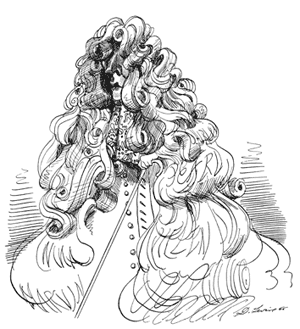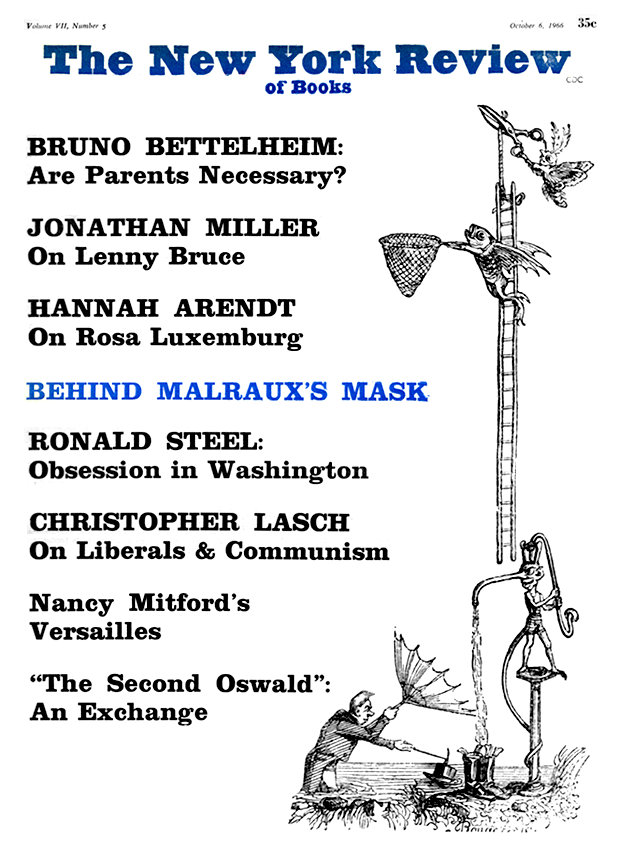Life at the French court between 1660 and the Revolution is a subject that never seems to pall. Since Louis XIV’s day there have been many changes in the standards by which public opinion judges morals and politics. Even before the Revolution the behavior of high society in France (and for that matter elsewhere too) provoked widespread indignation and ridicule. It has often done so since. From that day to this, however, in many countries, there have always been sections of the public who have found the subject engrossing reading. It seems to present the same kind of attractions as do the careers of movie stars to less instructed audiences. The modern writer who describes aristocratic life in the seventeenth and eighteenth centuries more often than not portrays his principal characters as futile and irresponsible. This does not, however, diminish the glamor which attaches to them because they were rich, elegant, self-assured, and sophisticated. Reading about them clearly satisfies a psychological need (the nature of which it would be interesting to investigate) in certain quarters of present-day affluent societies.
We are now presented with two new books that cater to this need. One of them, by Nancy Mitford, purports to give an account of the principal events of the reign of Louis XIV and is embellished by magnificent illustrations. The other, by Gilette Ziegler, is a collection of extracts from contemporary writings of the same period. The topics these two writers have chosen to discuss are so often the same that (had the authors’ approach been such as to lend itself to this kind of treatment) the two books, without a great deal of alteration, could have been issued together as a text with supporting documents.
Miss Mitford calls her book The Sun King but this choice of a title is not so happy as some of her previous choices. “The Pursuit of Love at Louis XIV’s Court” would have served her purpose better, for the book, though not exclusively, is primarily concerned with the love affairs of the King and his courtiers. Miss Mitford describes these affairs with her usual grace and wit, and they will provide two or three hours’ excellent entertainment for anyone who wants to be amused without intellectual effort, and who has not heard it all before. Many people, however, will have heard it all before, even if rarely in so agreeable a way or with such splendid visual aids. Notwithstanding the skill which Miss Mitford employs to bring a person or an episode to life, the picture which she draws of Louis XIV’s Court is a very hackneyed one.
LOUIS XIV IN LOVE is much less interesting than Voltaire in love, because Voltaire was a man of genius and Louis XIV an ordinary type. Miss Mitford in one place describes him as a “strange character,” but nothing that she says about him leads one to suppose that he was so. Since he was a human being he was unique. In this sense all human beings are strange. His principal characteristics, however, as described by Miss Mitford, were only too common among absolute monarchs. He had an enormous sense of the dignity of his office and was an awe-inspiring figure, but these qualities did not prevent him from coming successively under the domination of various women, particularly Madame de Maintenon. Though, unlike Louis XV in the days of Madame de Pompadour, he did not allow his mistresses to decide major issues of policy, there were nevertheless many minor occasions when they contrived to make him act contrary to his principles or to the opinions of his professional advisers. He was the first gentleman of his kingdom and “exquisitely polite.” As Montesquieu, however, noted (and Sieyès elaborated the point so as to make it an indictment of the aristocracy) politeness was an expression not of the gentleman’s sense of obligation to others, but of a duty he felt he owed to himself. In Louis, as in many others, it was often combined with callousness towards even the members of his immediate circle. Louis’s self-complacency was boundless (“God,” Miss Mitford quotes him as saying, “seems to have forgotten how much I have done for him”). His capacity for shutting his eyes to unpleasant facts was equally so. “He never wanted,” Miss Mitford tells us, “to hear of the sad and often desperate condition of the majority of his subjects.”
Miss Mitford herself, however, does not want her readers to hear of this matter either. In the present century it is hardly possible to overlook the fact that of the twenty million inhabitants of Louis XIV’s France some 90 per cent or more were peasants. A considerable proportion of the rest were people described at the time and later by the ambiguous term of bourgeois. Miss Mitford uses the word bourgeois as an adjective to be applied to ministers but otherwise finds no occasion to mention it. In concession to modern preoccupations she devotes a sentence or two to the peasants (whom aristocrats, in any case, have never disliked as much as bourgeois), though there is no reference to them in the index. Colbert, she says, did nothing to help them, but what does she suppose he could have done? An ingenious and learned German historian once maintained that Colbert thought that agricultural poverty was incurable, and for this reason concentrated on developing industry, both in the towns and the countryside. Problems of this order, however, are of even less concern to Miss Mitford than they were to Louis XIV.
Advertisement
NOR IS MISS MITFORD more concerned with war and diplomacy even though she points out that these activities, and designing his châteaux, were Louis’s favorite occupations. Her account of Louis’s invasion of Holland in 1672, which largely determined his foreign policy throughout the rest of his reign, reads like 1066 and All That. “Each time his eye slid down this river [The Rhine] on the map, he was annoyed to be reminded of little Holland. He put on his feathered hat and went off with his great generals Condé and Turenne to bring her down.”
No one, however, could be so pedantic as to blame Miss Mitford for failing to pay serious attention to any of the aspects of Louis’s reign that have hitherto preoccupied historians. History is concerned with causes and Miss Mitford has never pretended to be interested in them. She is interested only in aristocrats, and only in the way that aristocrats (if one excludes the distinguished intellects among them, for example, Tocqueville) used to be interested in themselves. To her Louis XIV’s Court is a phenomenon in its own right, fascinating to observe but no more in need of explanation or justification than the royal power seemed to Louis himself.
This way of looking at things is itself interesting, and we owe Miss Mitford a debt of gratitude for bringing it to our notice, as well as for the illuminating details she provides about high society during the Grand Siècle. Intentionally, or unintentionally, in fact, some characteristic aristocratic attitudes are well brought out in this book. It would, however, be idle to pretend that they are not brought out much better in other books. Anyone today who wants to understand the psychology of the former European aristocracies would gain far more insight from the great writers of the nineteenth century—say, Tocqueville or Stendhal—than Miss Mitford is able to provide, or even from some novels of the twentieth century, for example Joseph Roth’s Radetzkymarsch, or Lampedusa’s The Leopard. They would do so not only because of these writers’ greater talents, but because they saw things from both sides of the fence. A writer who is only interested in aristocrats, and ignores their relationship with other classes, is not the best person to describe them.
Thus even if we judge Miss Mitford by her own standards we must admit that her vision is myopic. Her work has another defect too. Though the aristocratic outlook on life, from Louis XIV’s day to its demise in the twentieth century, had many constant features, it also underwent various changes. Miss Mitford’s point of view is much nearer to that of the aristocrats of the eighteenth than of the seventeenth century, because she is continually tempted to make a joke of things that in the seventeenth century were taken seriously. She reminds one of the émigré hostess in Brussels during the Revolution who observed, in answer to a guest’s remark that he was in favor of the Ancien Régime apart from the abuses: “The abuses! Why they were the best part.”* The intensity of religious passion in the seventeenth century; the profound belief in hierarchy and discipline (strangely combined though it was with anarchic attitudes); the obligations to which the nobleman felt compelled to submit in return for the privileges attaching to his status—all these aspects of the seventeenth century scene can hardly be said to have justice done them. Yet they were the psychological prerequisites of absolutism, the belief in which was undermined at the end of Louis’s reign by economic and military disaster.
THE CHARGES AGAINST Miss Mitford cannot be brought to the same extent against Miss Ziegler even though the approach in both books is the same. Miss Ziegler has produced a collection of contemporary documents, and these can always convey the atmosphere of the time better than any except the most skillful of secondary accounts. A person who wants to understand the mentality of Louis XIV’s court might, if he were willing to make the effort, gain more insight from Miss Ziegler than from Miss Mitford.
Advertisement
The effort, however, is hardly to be expected from the casual reader, and any other kind of reader would be well advised not to attempt it. Miss Ziegler’s documents occupy nearly 400 pages divided into 24 chapters; but the chapter headings convey little or no idea of the contents, which do not seem to have been selected on any principle except that of providing sensational court gossip. Miss Ziegler says nothing about the writers of the various passages she quotes, and common sense suggests that these writers (when, for example, they bandy about figures of the cost of Versailles) are sometimes unreliable. She often quotes different accounts of the same occurrence without providing any guidance as to which (if either) should be believed. Finally, though there is a bibliography at the end of the book, there are no references. For the serious student her work has therefore little use. For readers in search of light entertainment—and it is these, apparently, that she has in mind—Miss Mitford’s text and its magnificent illustrations have more to offer.
This Issue
October 6, 1966
-
*
“Les abus, mais c’est ce que il y avait de mieux.” ↩



